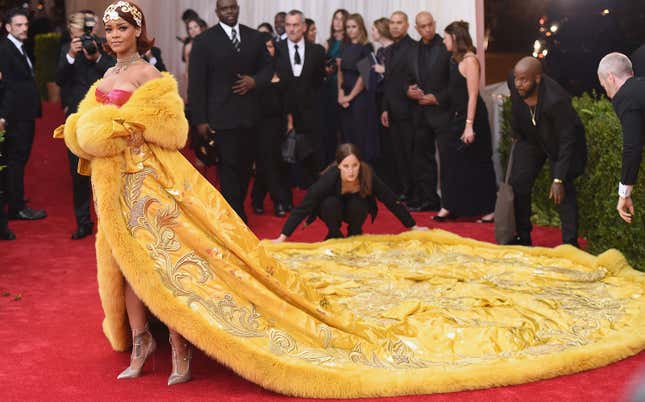

There are a few social media accounts whose greatness I guard with duty. I tell very few friends about these and would never comment on them in any public sphere despite devoting most of my working days to writing about things that I like. Sharing precisely what’s so special about these modest accounts with a handful of followers and an amateur approach to self-promotion would risk altering reality as I know and love it. I want them to stay as they are, extreme and even at times unhinged, without the self-consciousness to interfere with them being their pure selves—or the heightened version of these selves that they display on the internet. I want them to stay pure.
These accounts are about as close as I get these days to reliable pure camp, that naïve strain of the sensibility that Susan Sontag rhapsodized in her seminal 1964 essay “Notes on ‘Camp.’”—still the most articulate word on this method of appreciation whose ultimate statement, per Sontag, is “it’s good because it’s awful.” The more oblivious to the awfulness, the more pleasing the camp tends to be. “One must distinguish between naïve and deliberate Camp,” wrote Sontag. “Pure Camp is always naive. Camp which knows itself to be Camp (‘camping’) is usually less satisfying.”
Sontag’s essay predated the intentional camping of peak John Waters, who refined the sensibility into something capable of being conjured and satisfyingly replicated. Waters was nothing short of a magician for that transubstantiation. Attempts at such are usually more ham-handed and groan-provoking, the Sharknados of the world whose sloppiness makes the absurd seem obvious and the driving sense of humor unavoidable. At a certain point this becomes broad comedy; the CGI shark swirling in a cyclone is just a stand-in for a rubber chicken.
A work like Sharknado is so performative in its silliness, it operates like an over-praised child. It seems awfully proud of its stupidity. That movie underscores how hard it is to find that pure, naive camp today, in this world where incompetence goes viral and the feedback echo is louder and more accessible than ever. Everyone watched Rebecca Black go viral in 2011 with “Friday” and awfulness was incentivized. The closest thing to pure camp I found recently was Karyn Kusama’s Destroyer, in which Nicole Kidman plays gritty underneath a rubber mask that could have been laughed out of Party City. The self-serious subgenre of Oscarbait is a potential breeding ground for great awfulness, but rarely does it go over the top enough to really tease the art out of artifice.
-

-

-

-

-

-

-

-

-

-

-

-

-

-

-

-

-

-

-

-

-

-

-

-

-

-

-

-

-

-

-

-

-

-

-

-

-

-

-

-








































